WATCH: Andrew Rosindell: St George's Day should be a public holiday
GB NEWS
Campaigners have warned of 'potentially existential' threats to England's patron saint
Don't Miss
Most Read
Newham, in the old East End of London, is among the least English parts of the country.
It's under an hour's drive from Castle Point - the most English town in England.
Just 4.1 per cent of the borough, which traces its history to 958 AD, marked their national identity as "English only" at the 2021 Census, and that's before non-EU migration to the UK markedly increased.
Across the country, English identity dropped from 60.4 per cent to 15.3 between the 2011 and 2021 censuses - while Newham's 4.1 per cent English-only identity fell from 20.7 per cent in 2011.
At the top end of East Ham's High Street - in central Newham, where 1.6 per cent of residents identify as English, despite around 40-50 per cent of those in the area having been born in the UK - stands an international care worker recruitment firm. A few minutes' walk away is an immigration law practice.
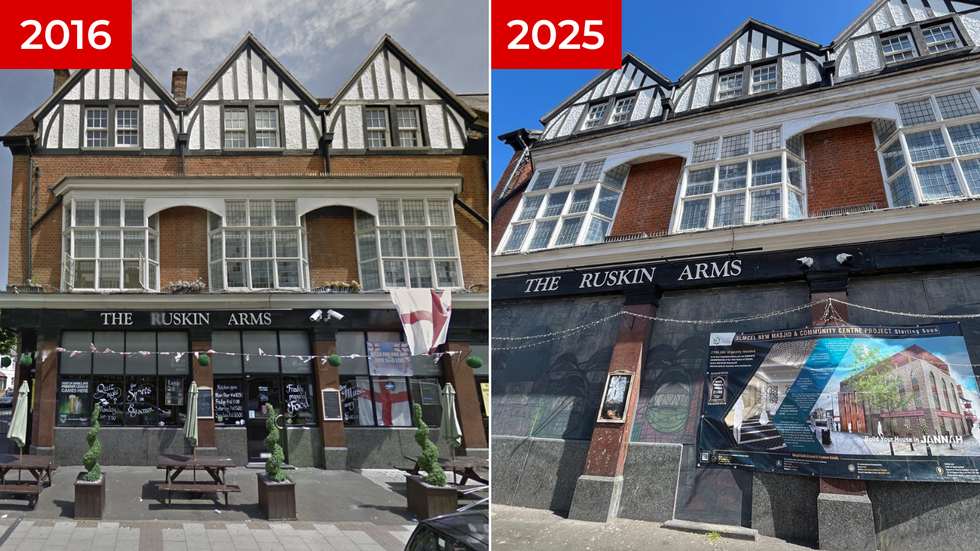
The Ruskin Arms is now derelict, save for a fundraising poster for a nearby £3.1million-valued masjid
GOOGLE/GB NEWS
The street is peppered with South Asian speciality stores, jewellers, food markets and more - no longer an unusual sight in any of England's big cities.
There is a Hindu temple, a Sikh gurdwara, and a smattering of mosques all within a few hundred metres.
Aside from a Union Flag on Newham Town Hall, the St George's Cross can't be seen flying anywhere.
Two of the High Street's grand old pubs - the Denmark Arms and the Earl of Essex - have long since closed.
Another, the Ruskin Arms, is derelict, save for a fundraising poster for a nearby £3.1million-valued masjid or Muslim place of worship.
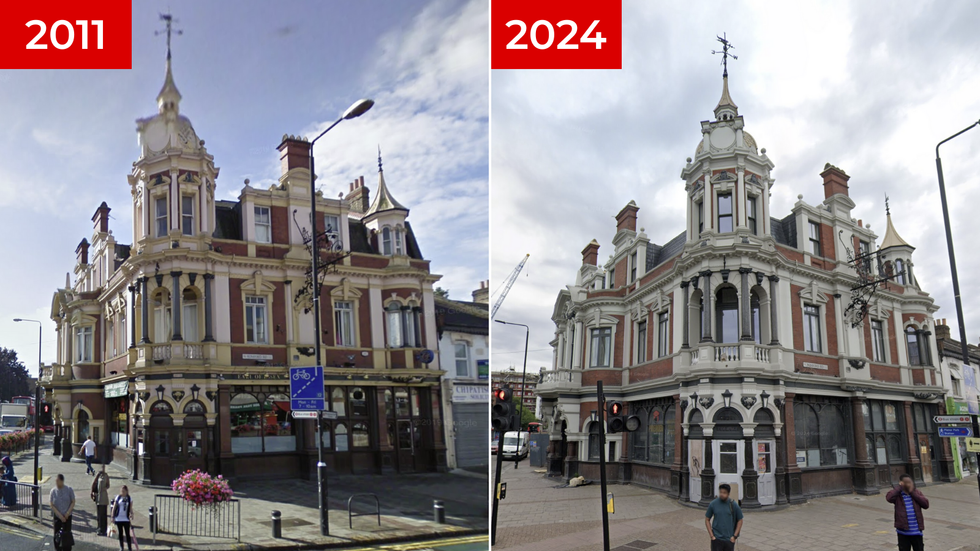
The Earl of Essex, pictured in 2011 and 2024
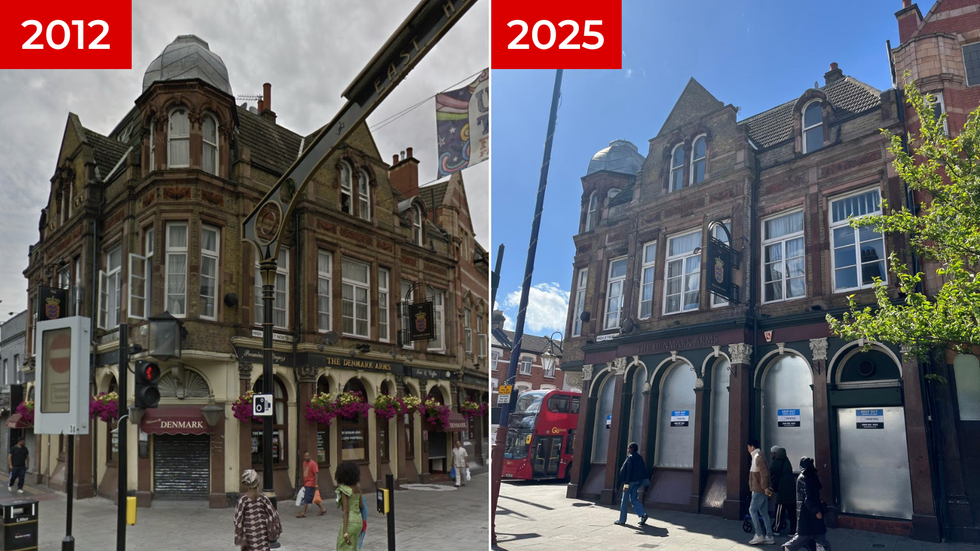
The Denmark Arms, pictured in 2012 and 2025
GOOGLE/GB NEWS
When GB News visited Newham, several South Asian New Year's celebrations had just passed - but with St George's Day around the corner, the People's Channel wanted to find out what locals thought of England's national day - and Englishness as a whole.
Arjun Banerjee, 23, said: "No, I'm not English. I'm from Bangladesh. I'm proud to be Bangladeshi. English people should be proud too... Why not?
Asked what makes somebody English, he said: "It depends on your parents," but counselled that he would consider himself "more" English if he'd lived here all his life.
St George's Day "isn't something I grew up celebrating", he added - and said his family tended to celebrate holidays like Eid or Bengali New Year instead.
Though he didn't know when St George's Day fell, he did know when Bangladesh celebrates its Independence Day, on March 26.
But he added: "It would be nice for English people to celebrate more."

Just one St George's Cross was seen along East Ham High Street - as part of a Union Flag on Newham Town Hall
GB NEWS
Hamza, 20, spoke to GB News from his food delivery bike. He said: "I was born in London. I grew up here, but I don't think I'm English. I'm proud to live here. The UK gave me a lot of chances."
As for what makes him proud to be English, he said: "It's safe. I can work, I can help my family... We have free hospital, not like in Bangladesh," where many of his extended family still live.
Hamza said he had heard of St George's Day, but did not know when it was. And when asked what he thought of English cities celebrating St Patrick's Day - and whether they could do more for the English equivalent, he said: "Yeah, why not? It's for everyone."
Michael, 54, is a father-of-two of Nigerian heritage who was born in Hackney, also in east London.
He said that he considered the East End home - but had a "complicated" relationship with being English.
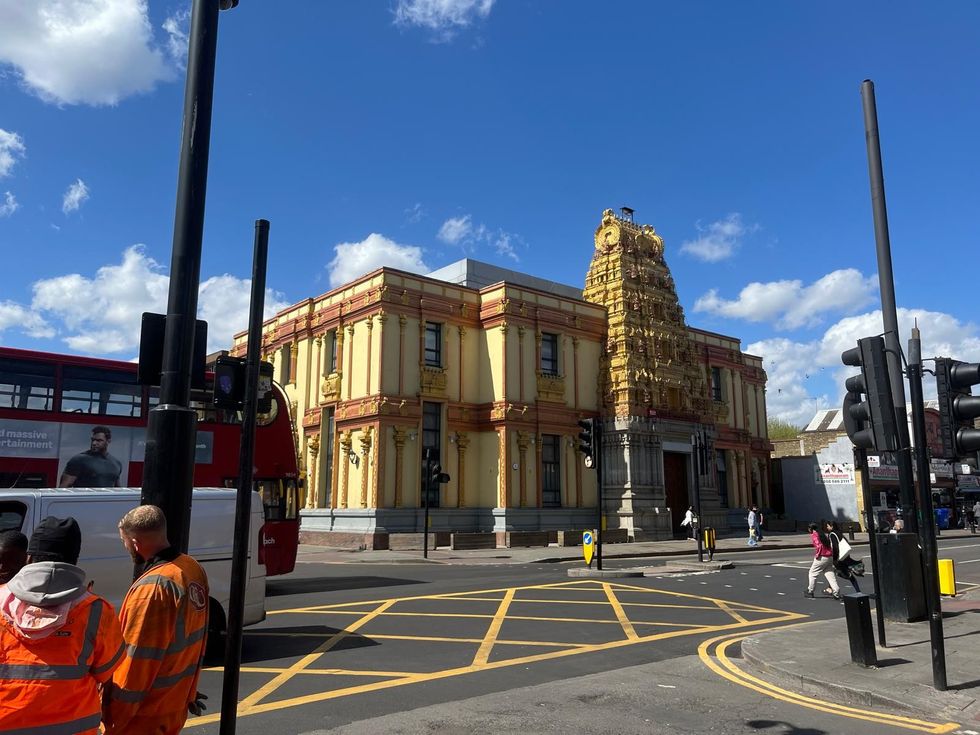
A large Hindu temple sits on the High Street
GB NEWS
"I love this country. Raised here, raised my children, worked here all my life, paid taxes... But it feels like not everyone always sees people like me as properly English... Even if you grow up here, it's easy to switch between being English and Nigerian."
Being English isn't about one's background, he argued. It's about being "part of the community".
"If you care about the country, contribute to it, respect it, you're English."
Michael said St George's Day was "some time in April" - and called for a more "inclusive" day which "celebrates Englishness in a way that reflects modern England".
However, he said he'd "have a beer and put his hat on" on April 23.
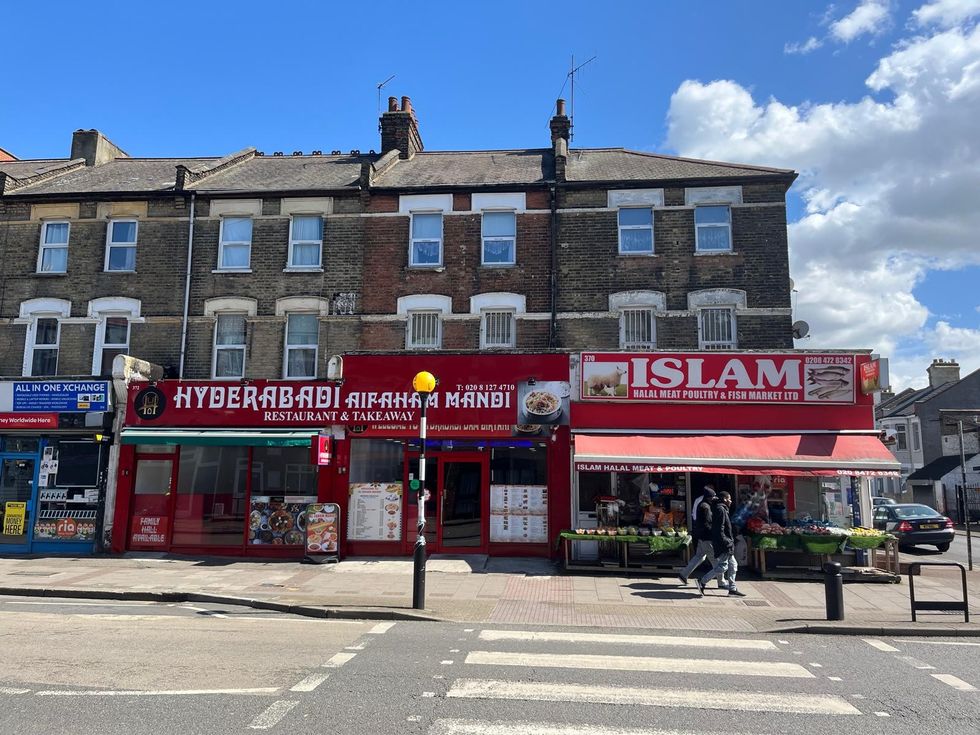
The street is peppered with South Asian speciality stores, jewellers, food markets and more
GB NEWS
Sajith, 31, said he came to the UK two years ago - and does not feel English at all.
Englishness, to him, is "maybe about being born here or living here long enough to feel a part of it" - and asked why people felt less English than ever before, he said that people perhaps "feel disconnected from the country".
Sajith hadn't heard of St George's Day at all. He still feels "connected to Sri Lanka" and his own culture. However, he said the day should make "everyone who lives here a part of it".
Around Newham, some groups are trying to do just that. One, Cohesion Plus, is running its annual St George's Day parade in nearby Dartford - hailed by campaigners at another, British Future, as "a great example of how an inclusive celebration of St George's Day can really help build cohesion".
While London-wide, City Hall Tory leader Neil Garratt told GB News that April 23 "represents an opportunity for Londoners to come together, along with people across England, to recognise our ties with each other and the communities in which we live, at a time when increasingly it feels that they are fraying in the face of modern life".
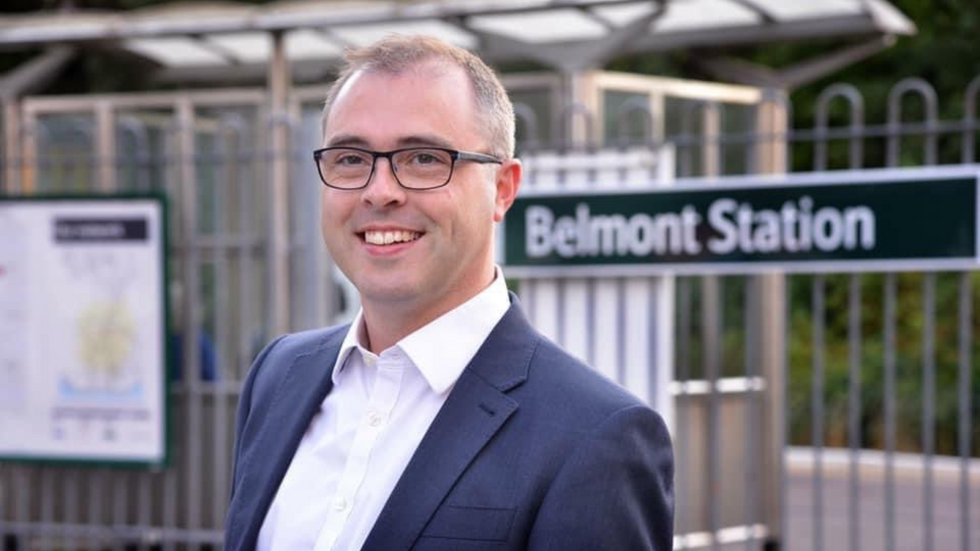
Communities are 'fraying in the face of modern life', Neil Garratt said
SUTTON CONSERVATIVESBut with more and more towns and cities across England facing the cultural shocks of soaring migration, other campaign groups have sounded the alarm over St George's Day.
Rob Bates, of the Centre for Migration Control, told GB News: "The twin threats of mass migration and multiculturalism are potentially existential for St George's Day and other national festivals.
"New arrivals have faced no pressure to assimilate into English or British society and have instead created cultural silos for themselves where few would even know about St George's day, let alone celebrate it.
"The damage has been caused by an immigration system that allows anybody to bring their own culture and way of life to these shores, with little to no expectation that they adopt the customs and habits which have defined our nation for centuries.
"Areas of our inner cities, such as Newham, now see the ascendency of all manner of foreign customs and festivals, to the exclusion of our nation's own Patron Saint - towards whom there is little fidelity or tradition of celebration.
"Englishness has been under attack by politicians, who describe our culture in broad and vacuous terms, stripping it of all real meaning and thus permitting other cultures to fill the void."
Newham Council, asked whether it would be marking St George's Day, did not respond to requests for comment.













